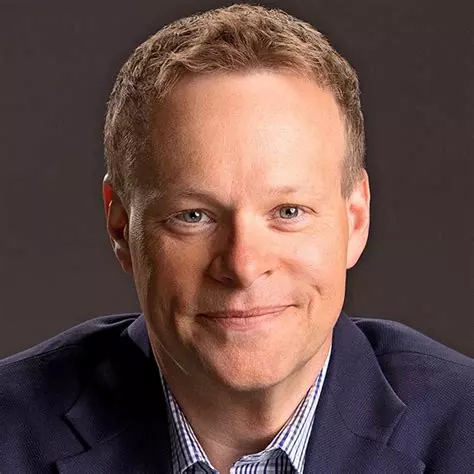Sorry but this is a good thing. Earths population is too large for the resources available.
My instinct is that you’re right, but I wonder if what we’re really saying is that earth’s population is too large under the currently dominant socioeconomic and lifestyle constructs.
It’s clearly the current lifestyle. Africans are destroying the world much less than the industrialized world because they’re too poor to live the climate-wrecking lifestyle of the West.
A key issue though is that it takes a while for lifestyles to change. The higher the population, the quicker the switch needs to be done to avoid catastrophic consequences.
If the Earth’s population were 100 million, it might be fine to take a century to switch away from fossil fuels. But at nearly 10 billion, if it takes a century, the results will be catastrophic.
In the end, that’s more or less the same thing. But the question is, do we need more people? It’s also easier to be sustainable if we require less.
I mean, yes but also no. There’s just way too many people, period. Merely 60 years ago the human population was sitting around 3 billion people. Now it’s 8. Earth’s resources are finite, and at this rate of growth I would not be surprised if we ran out of non-renewables (with no renewable alternatives that scale as well as non-renewables) in our lifetime or our children’s.
sorry comrade, but under capitalism any amount of people is too much as capitalism itself is predicated on infinite growth.
Absolutely true and correct.
Of course this is a good thing, but there are still serious negative consequences to a reducing population, which must be mitigated. Primarily, old people who are past working age are an expensive population to maintain. When there are as many or more old people as there are young, the burden is too heavy for young people to bear. And I say this as a 70 year old. Young people today CANNOT hit old age without their own substantial retirement resources.
A new robot factory is going live in Oregon that is manufacturing general purpose humanoid robots, so guess you could just buy a few to keep around the house.
But, maybe the idea that the young should support the old in their retirement is bad idea.
Why shouldn’t it be someone’s responsibility to finance their own retirement? Why should it be expected that the younger generation supports the old?
It has always seemed insane to me that I’m expected to fund the retirement of people 25+ years older, and I’m counting on people 25+ years younger to take care of me. Of course purely individual retirement planning only works for the rich and the lucky. But, you pay into a pot that helps with retirement costs, they should be the retirement costs of people roughly your age.
If a generation is funding its own retirement, then it doesn’t matter if people are having fewer kids. In fact, if they have fewer kids they’ll have more money left over to put into the pot for their own retirement.
As you know, the current system in America is that we pay into the retirement system. In the present time those funds are used to support present day seniors, and then when you have reached the proper age the people currently paying into it are supporting you but can (supposedly) expect to be supported the same way. I started paying into it at age 16, and now at 69 I am collecting. And additionally, I need to have saved up.
I don’t know how we would transfer out of this system and into a completely self sufficient one. I DO know that this system mitigated the deep deep poverty many elderly used to experience. Because for the working and poor classes, no one realistically makes enough to set aside for retirement.
It’s not necessarily financial trouble.
You need health care workers. Those workers do not contribute to other sectors of the economy, but still consume products. So a growing population of older people automatically reduces the effective number of working people.
I understand the current system, I just think it’s not a good one. It seems to be designed on the idea that there will be an ever greater pool of young people who will support the people who are at retirement age. If that assumption is incorrect (and it currently seems to be incorrect) the current seniors don’t have enough to retire.
It would make more sense if the system was designed similar to an individual retirement plan, except pooled for everybody of a certain age. So, you paid into the system throughout your life, then withdrew money when you retired. In a system like that it wouldn’t matter if there was a population boom or a population crash when you were getting older, because the only thing that mattered for your retirement were the contributions you (and everyone else your age) made during your life.
Undoubtedly it would be hard to switch to that kind of a system, but it makes so much more sense than your retirement depending on the contributions of future generations.
You could make this argument about literally anything in a modern society.
“Why shouldn’t it be someone’s responsibility to finance their own education?”
“Why shouldn’t it be someone’s responsibility to finance their own healthcare?”
“Why shouldn’t it be someone’s responsibility to finance their own social care?”
“Why shouldn’t it be someone’s responsibility to finance their own fire department?”
It has always seemed insane to me that I’m expected to fund the retirement of people 25+ years older, and I’m counting on people 25+ years younger to take care of me.
I think it’s just common decency to help look after your fellow people? Not everyone in retirement is going to require a lot of financial help, but there maybe others who do. Some may not have been so lucky in life to be a position to fund it themselves. What happens to these people if the funding isn’t there? Do they literally starve to death on the the streets?
I’m not saying that we shouldn’t look after each-other. I’m just saying the system shouldn’t be designed so that the middle-aged people of today require that the birth rate be high enough or they won’t be able to retire.
I am not an expert, but it seems like most developed countries are learning to deal with a shrinking population. The current decline hasn’t had effects like loosening up the job market, so it seems to me this means it’s not currently causing any problems that would be catastrophic. There’s clearly enough workers for the work that needs to get done.
I think there’s not yet been a article of all the ‘doom and gloom’ of population decline that actually explains why it’s worse than overpopulation.
Because the problems come years after the birthrate decline when a large portion of your population is retired and you don’t have enough young workers to fill the roles they typically fill
It’s going to be tough but it needs to happen eventually, plus now we have ai which should help alleviate some of that once it really gets going
You’ll also run out of young people who can just take care of the elderly.
For one, those roles dont pay worth a damn anymore. Two, many roles are being automated.
This society we built is now too expensive for anyone but the top 10 to 20 percent to afford. All these old people are expecting youngsters to foot the bill, but the young cannot even afford to look after themselves let alone an entire generation of seniors. How the hell are they supposed to afford kids?
and you don’t have enough young workers to fill the roles they typically fill
This is a myth. Immigration guarantees that you’ll ALWAYS have workers to fill whatever roles you need filled.
I can’t tell if you are sarcastic or serious. Population growth is slowing globally so it’s not like there is an infinite supply of young people.
Population growth is slowing globally so it’s not like there is an infinite supply of young people.
There doesn’t need to be an infinite supply… of any age group.
This is simply a course correction for what’s been an unsustainable pace of population growth worldwide in the last 100 years.
Oh man let’s tell that to the Koreans and see how they feel about that…
Hey, if they have a solution to a problem that they “don’t like”, too bad for them.
Except we need really tight labor shortages to jack up wages and house prices to go down
most developed countries are learning to deal with a shrinking population
Not really, most countries are dealing with it by increasing immigration. That’s clearly not a sustainable long-term plan.
Why not? If you manage immigration such that the population stays constant, what’s bad?
It relies on the birth rate in other parts of the world to stay high (something you can never guarantee), and requires that those countries stay poor enough that they want to leave everything behind and emigrate (something you can’t guarantee, and also something shitty to try to guarantee).
This is because by and large koreans are smart.
Yay for Korea! A constantly growing population is not sustainable.
This isn’t a Children of Men scenario, so there’s no need to fear intentional low birthrates.
Except
- Young Koreans aren’t getting better jobs
- Housing isn’t slowing down fast enough
- Yoon and South Korean Government are trying to raise working hours
Koreans are having a low birth rate because they are destroying their youth
Those points seem to all be a result of rapid growth, which will (eventually) have to correct itself.
The only people who should worry about low birth rates are corporations who know that won’t be selling their garbage to as many people as they forecasted for shareholders. 😁
Also universities will have declining enrollment, and pension funds will have declining contributions.
Also universities will have declining enrollment
Naturally. Fewer people = fewer students. A smaller country would have fewer students, and a larger country would have more.
Enrollment rates matter more than how many are going, and universities will adjust.
pension funds will have declining contributions.
There will also be fewer pensioners to look after, so not as many contributions are needed.
The real problem with pensions is that people are living longer, so they get money over a longer period of time. Adjustments to pension contributions are more likely to reflect that fact.
But we are talking about a lower birthrate, not a zero birthrate. These “problems” are happening a percent at a time over decades… society would have no issue adjusting.
Low Birthrates aren’t the problem
The problem here is low birthrates are caused the despair and hopelessness of the young
It’s a cycle, too. It’s rough out there, especially if you aren’t lucky enough to have generous and wealthy parents. Schooling only does so much if the jobs in the field are still taken. Degrees aren’t the guarantee that they used to be for a stable income. It’s tough to even support yourself.
There are poor social supports. If you do have a kid while you’re struggling, you get a lot of anger over not being able to provide for them, regardless of if it was your choice to have children. You see this happening almost everywhere. You don’t want your possible kids to suffer or go without necessities, either. The current easiest solution to that problem is to just not have them, if at all possible. Of course, people complain about that too.
I would love to see articles about industries failing that don’t blame young people. Many of us don’t have the excess funds to really even make that choice ourselves, tbh. If I’m struggling to pay bills, of COURSE I’m not going to spend it on menial things that aren’t necessary.
Edit: Don’t even get me started on the backlash that happens any time someone tries to help young people earn adequate money. Not doing anything is more comfortable, so people don’t care to voice for their own wages to also increase. Instead, they prefer for other people to struggle to afford even the bare minimum. Of course many of us feel hopeless.
You’d think “people can’t afford to fuck” would be some kind of wake up call for capital.
famously, people get more kids the more money they have








